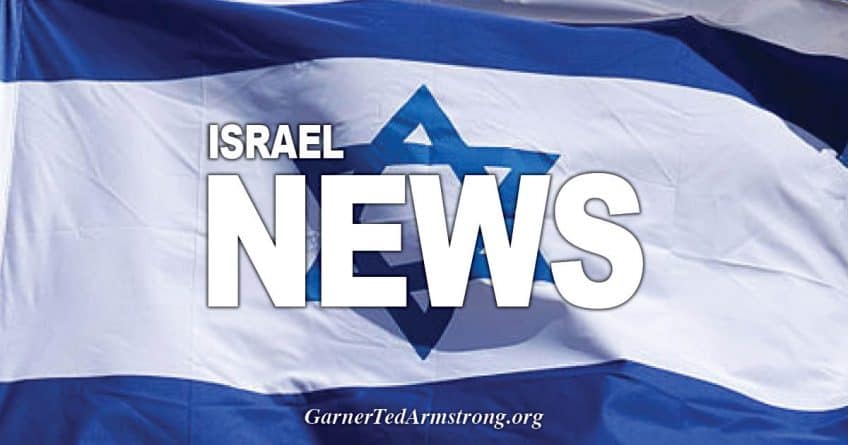
In this Thursday, Dec. 13, 2018 photo, UN peacekeepers hold their flag while standing next to Hezbollah and Lebanese flags, at the site where Israeli excavators are working, near the southern border village of Mays al-Jabal, Lebanon AP Photo/Hussein Malla
As the United Nations security council is set to convene Wednesday to discuss recently discovered cross-border attack tunnels between leading from Lebanon to Israel, Jerusalem has called for the UN body to “employ all its means” to destroy Hezbollah’s infrastructure in Lebanon following the UNIFIL’s confirmation that the four tunnels exposed so far violate UN resolution 1701.
Israel’s ambassador the the UN, Danny Danon, called on the Security Council to not only do everything in its power to punish and prevent Hezbollah’s activity but to acknowledge the Lebanese military’s complicity.

Israeli ambassador to the United Nations Danny Danon, pictured at a Security Council meeting on July 24, 2018, said US diplomats were in talks with their EU counterparts on a draft text Drew Angerer (GETTY IMAGES NORTH AMERICA/AFP/File)
Danon, in a statement released Tuesday, said Hezbollah operates in cooperation with the Lebanese army, in clear violation of Resolution 1701.
The Israeli envoy is expected to present materials emphasizing this cooperation in front of the council.
Israel and the US requested the Security Council meeting, which is set to begin at 10AM local time (5PM Israel time).
Operation Northern Shield was announced to the Israeli public on December 4 as an IDF effort to prevent and destroy underground tunnels dug by Hezbollah from Lebanon into Israeli territory.
The IDF said that Israel has seen over the years a concerted effort by Iran-backed Hezbollah to dig such tunnels, though emphasized that none were yet operational nor posed an imminent threat to Israeli civilians.

UN peacekeepers patrol the border wall separating Lebanon from Israel on December 9, 2018, after the Israeli army said it had uncovered Hezbollah infiltration tunnels underneath Ali DIA (AFP)
Adopted in 2006 to end the second war fought between Israel and Lebanon, Resolution 1701 called for a full cessation of hostilities between all armed factions and a demilitarized zone south of the Litani River, implying neither Israeli Defense Forces nor Hezbollah militants are allowed to breach the area.
Israel is reportedly seeking to strengthen the authority of the UNIFIL peacekeeping forces in the buffer zone after the agency’s confirmation of the existence of a network of Hezbollah terror tunnels trespassing across the demilitarized zone into Israeli territory.
Al-Akhbar cited unnamed Western diplomatic sources as saying that Israel wants Washington to threaten a halt in military aid in order to push the Lebanese army to act in response to the tunnels, since UNIFIL maintains the issue goes “beyond its mandate” to deal with.
Russia has also reportedly called on the Lebanese army to take action against the tunnels following an Israeli army delegation visited Moscow last week to discuss “Operation Northern Shield”.
UNIFIL on Monday confirmed the existence of all four tunnels so far exposed by Israel since the launch of its anti-tunnel operation on December 4, and confirmed that two of the passageways indeed violate the border demarcation known as the “blue line”.
“After further technical investigations conducted independently in accordance with its mandate, UNIFIL at this stage can confirm that two of the tunnels cross the Blue Line. These constitute violations of UN Security Council Resolution 1701,” the international force announced in a statement.

United Nations Interim Forces in Lebanon (UNIFIL) military police cars drive past a concrete separation barrier between the southern Lebanese border village of Kfar Kila and Israel Ali DIA (AFP)
Lebanese news outlet Al-Nasra reported, meanwhile, that Prime Minister designate Saad Hariri met Tuesday with UNIFIL commander Stefano Del Col and stressed his country’s commitment to and compliance with Resolution 1701.
1701 emphasizes the complete sovereignty and responsibility of the Lebanese government for all activity in its territory.
Lebanese troops and intelligence officials have reportedly been “observing” Israel’s activities along the border and forces have been deployed to carry out operations with UNIFIL to prevent escalation.
A Lebanese military source told the London-based Asharq Al-Awsat newspaper that Israel has committed four violations of the Blue Line in its operations on the border claiming they were meant to change the location of the demarcation line.
But both Hariri and the military source were reported to have emphasized respectively that Lebanon has no interest in any escalation of the situation on the border.
Israeli Prime Minister Benjamin Netanyahu earlier this month toured the Israel-Lebanon border with a group of world ambassadors and urged them to condemn Hezbollah’s tunnel digging activities and intensify sanctions against the powerful Iran-backed militia.

A Hezbollah militant takes part in a military parade in the southern city of Nabatiyeh, on November 7, 2014 Mahmoud Zayyat (AFP/File)
Washington gave Israel its full backing upon the launch of the anti-tunnel operation, with National Security Advisor John Bolton emphasizing that the US “strongly supports Israel’s efforts to defend its sovereignty.”
But it has refused to levy sanctions against Beirut for its backing of Hezbollah, which has become a considerable domestic political player in Lebanon and sits in the Lebanese government, instead vowing to step up measures against the Iran-backed milita itself, the Haaretz daily reported last week.
Hezbollah never disarmed after Lebanon’s devastating 1975-90 civil war and is the country’s most powerful armed force. It is not considered a terrorist group by many countries.
Since their last fought war in 2006, Hezbollah has strengthened its military capabilities significantly with an estimated arsenal of some 100,000 and 120,000 short-and medium-range missiles and rockets, as well as several hundred long-range missiles trained on the Jewish State.
[Disclaimer]










